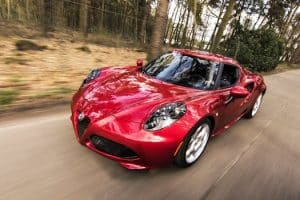Quantum Security: Unhackable Vehicles
In today’s digital age, the risk of hacking and cyber attacks has become a major concern for individuals and organizations alike. From personal gadgets to critical infrastructure, we are constantly connected to the internet and vulnerable to malicious attacks. This has also extended to the automotive industry, with the rise of smart and connected vehicles. However, with the emergence of quantum security, the concept of “unhackable vehicles” is becoming a reality. In this article, we will delve into the world of quantum security and how it is changing the game for vehicle cybersecurity.
The Rise of Connected Vehicles
Modern vehicles are no longer just mechanical machines, but have evolved into complex computing devices. With the advancements in technology, cars are now equipped with internet connectivity, GPS systems, and various sensors that collect and transmit data in real time. This has not only improved the driving experience but also opened up a whole new world of possibilities for automotive manufacturers.
However, with this connectivity comes the risk of cyber attacks. As vehicles become more connected, they become vulnerable to hacking and data breaches. This can have serious consequences ranging from theft and fraud to compromising the safety of drivers and passengers.
The Need for Vehicle Cybersecurity
The growing risk of cyber attacks in the automotive industry has prompted manufacturers to focus on vehicle cybersecurity. In 2015, a group of hackers were able to remotely control a Jeep Cherokee, demonstrating the potential danger of cyber attacks on connected vehicles. This incident sparked a wake-up call for the industry and brought the issue of vehicle cybersecurity to the forefront.
While traditional security measures such as firewalls and encryption are still effective, they are no longer enough to combat the evolving nature of cyber threats. This is where quantum security comes into play.
Exploring Quantum Security
Quantum security is an emerging technology that harnesses the principles of quantum mechanics to secure sensitive data. Unlike traditional cryptography, which relies on mathematical algorithms, quantum security uses physical properties of photons to secure information. This makes it virtually impossible for hackers to break into the system.
The use of quantum technology introduces a new level of randomness and unpredictability, which makes it extremely difficult to replicate the key used for encryption. This ensures that sensitive data, such as personal information and vehicle controls, remain secure even in the face of advanced hacking techniques.
Quantum Cryptography in Vehicles
One of the main challenges of implementing quantum security in vehicles is the limited physical space and computing power. However, researchers have been exploring ways to integrate quantum technology into existing vehicle systems without compromising their performance. One such approach is through photon absorption-based encryption, which uses the existing LED lights in vehicles to generate and transmit encrypted data.
Moreover, quantum cryptography also offers the potential for secure vehicle-to-vehicle communication. This can enhance the safety and efficiency of traffic systems and enable the development of autonomous vehicles.
The Future of Unhackable Vehicles
The concept of “unhackable vehicles” may seem far-fetched, but with the advancements in quantum security, it is becoming a reality. In fact, major automotive manufacturers such as Volkswagen and Toyota have already started incorporating quantum technology in their vehicles. This not only ensures the security of connected vehicles but also builds consumer trust and confidence in the brand.
However, like any emerging technology, quantum security also has its limitations and challenges. The high cost and complexity of implementing this technology may hinder its widespread adoption in the near future. Furthermore, as hackers continue to evolve their tactics, there is a constant need for further research and development in this field.
Conclusion
In conclusion, as the automotive industry continues to evolve, so does the need for robust cybersecurity measures. With the rise of connected and autonomous vehicles, the threat of cyber attacks is only going to increase. Quantum security offers a promising solution to counter these threats and ensure the safety of vehicles and their passengers. With further advancements and integration, we can look forward to a future where “unhackable vehicles” are the new norm.








